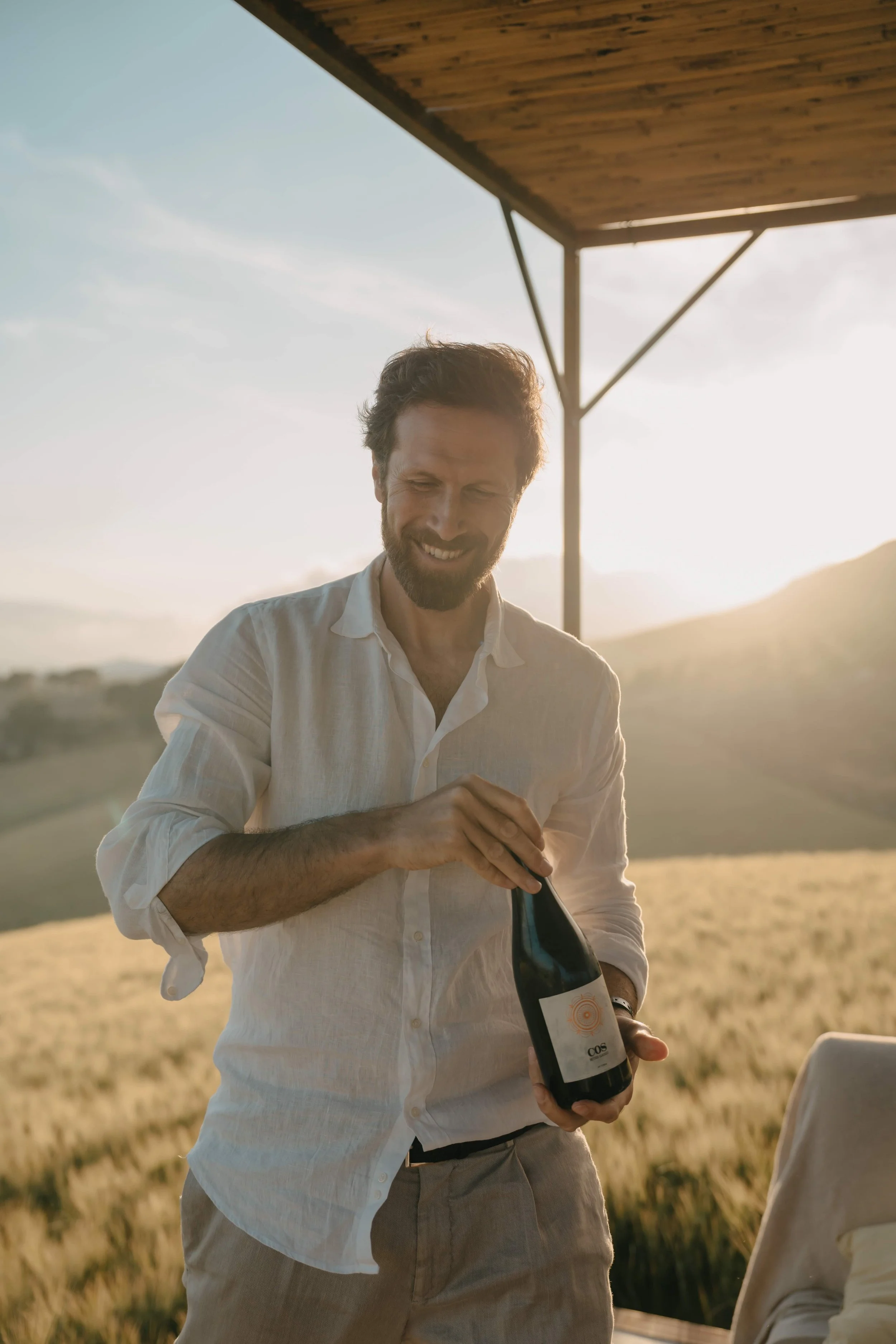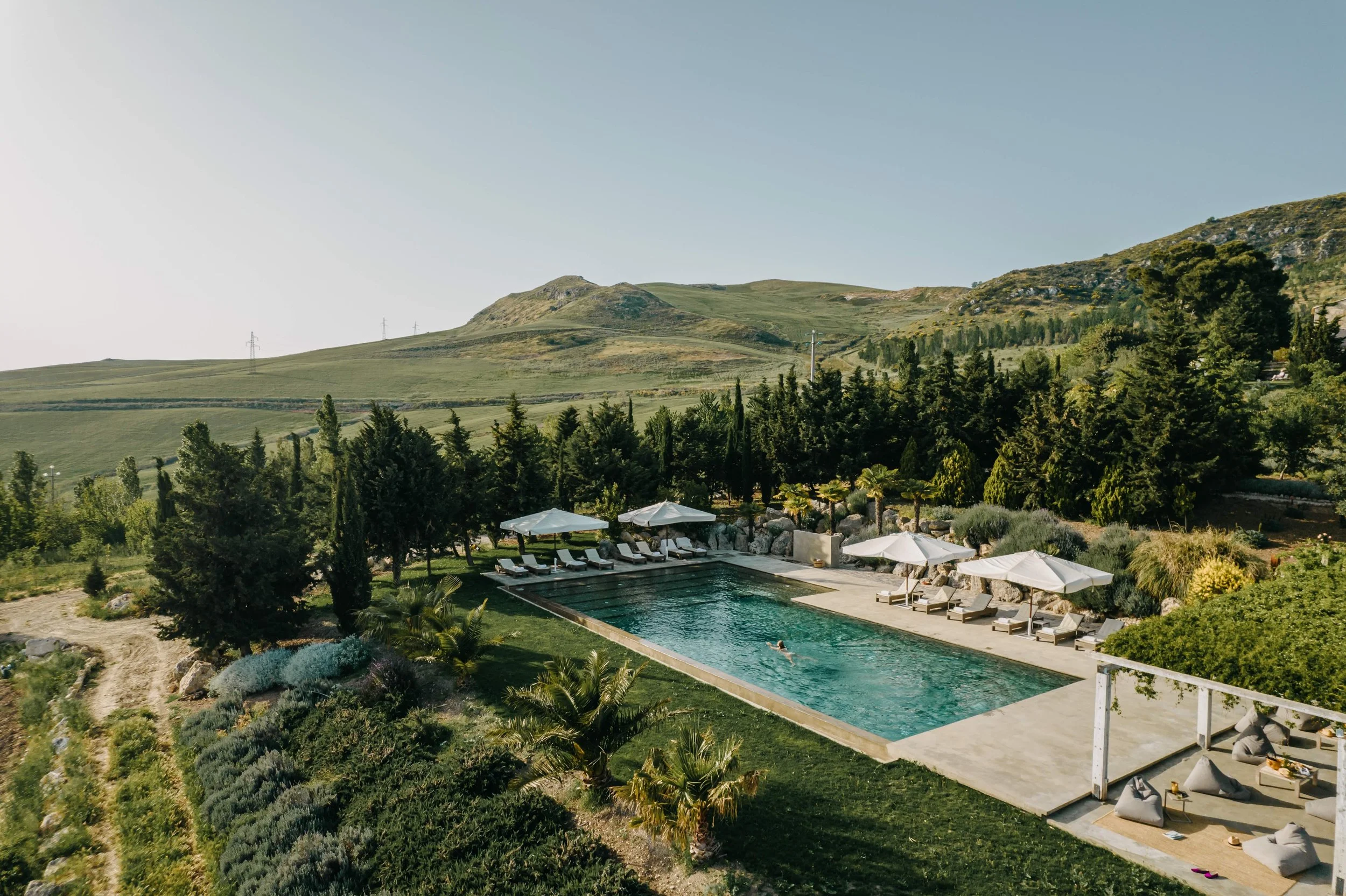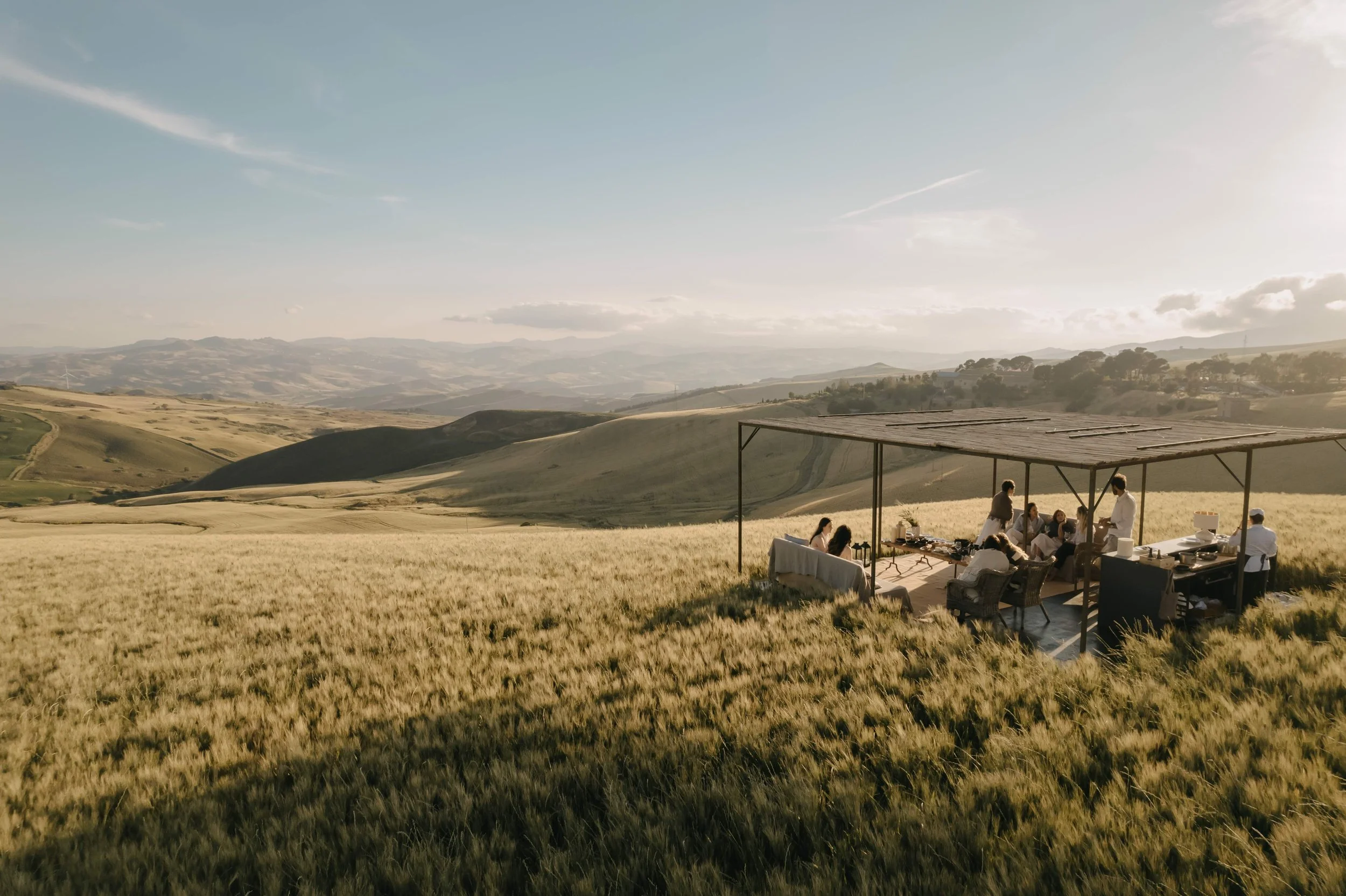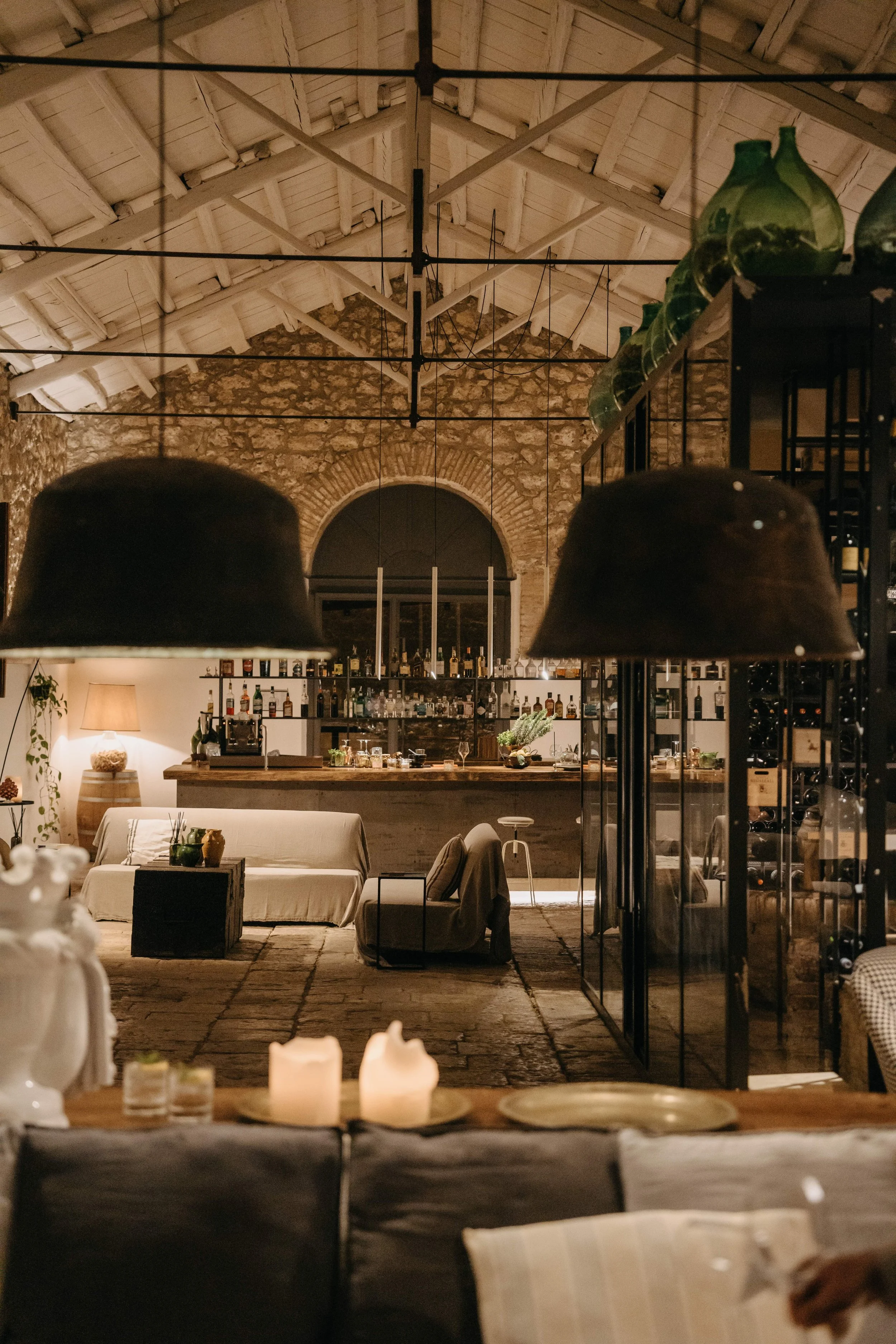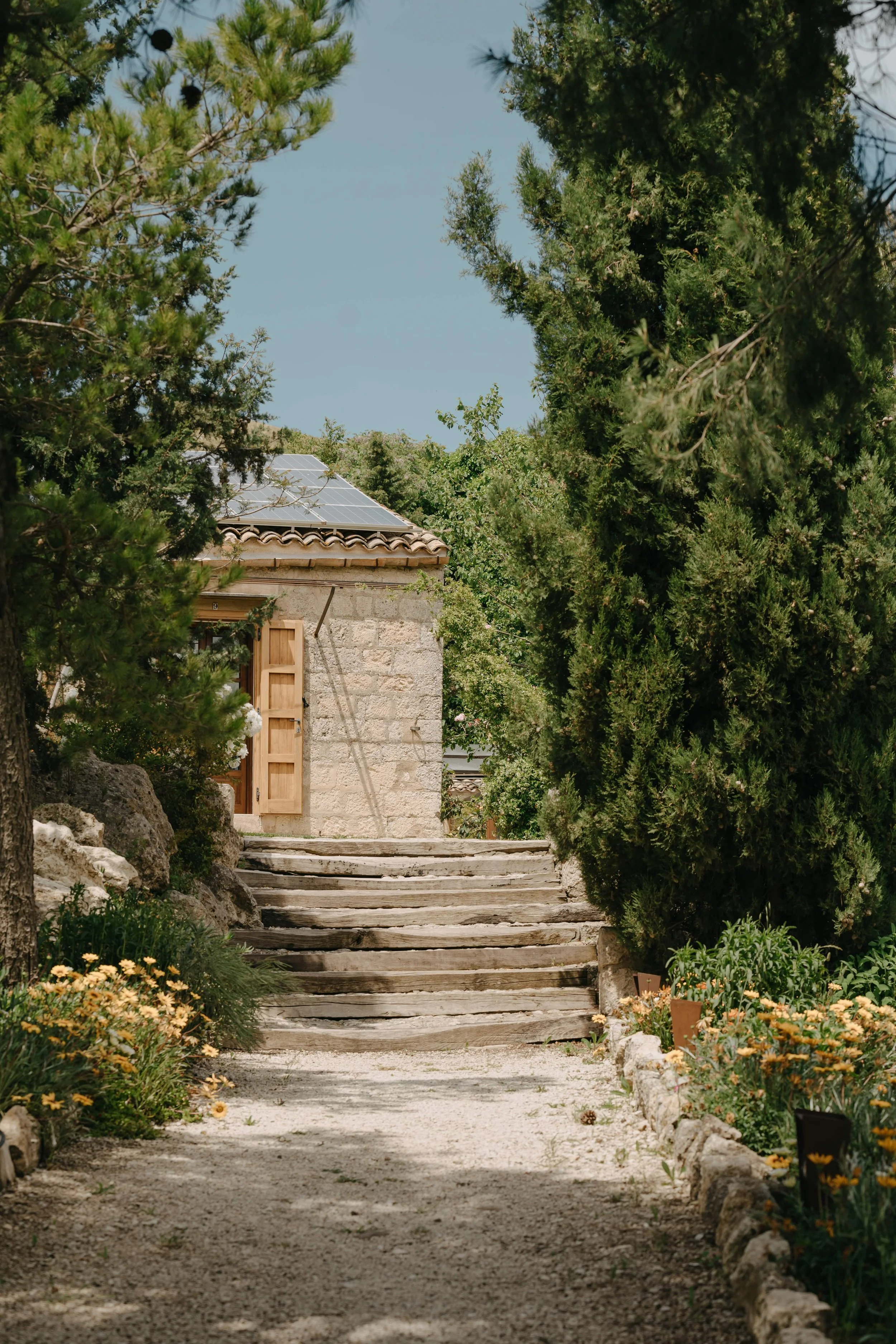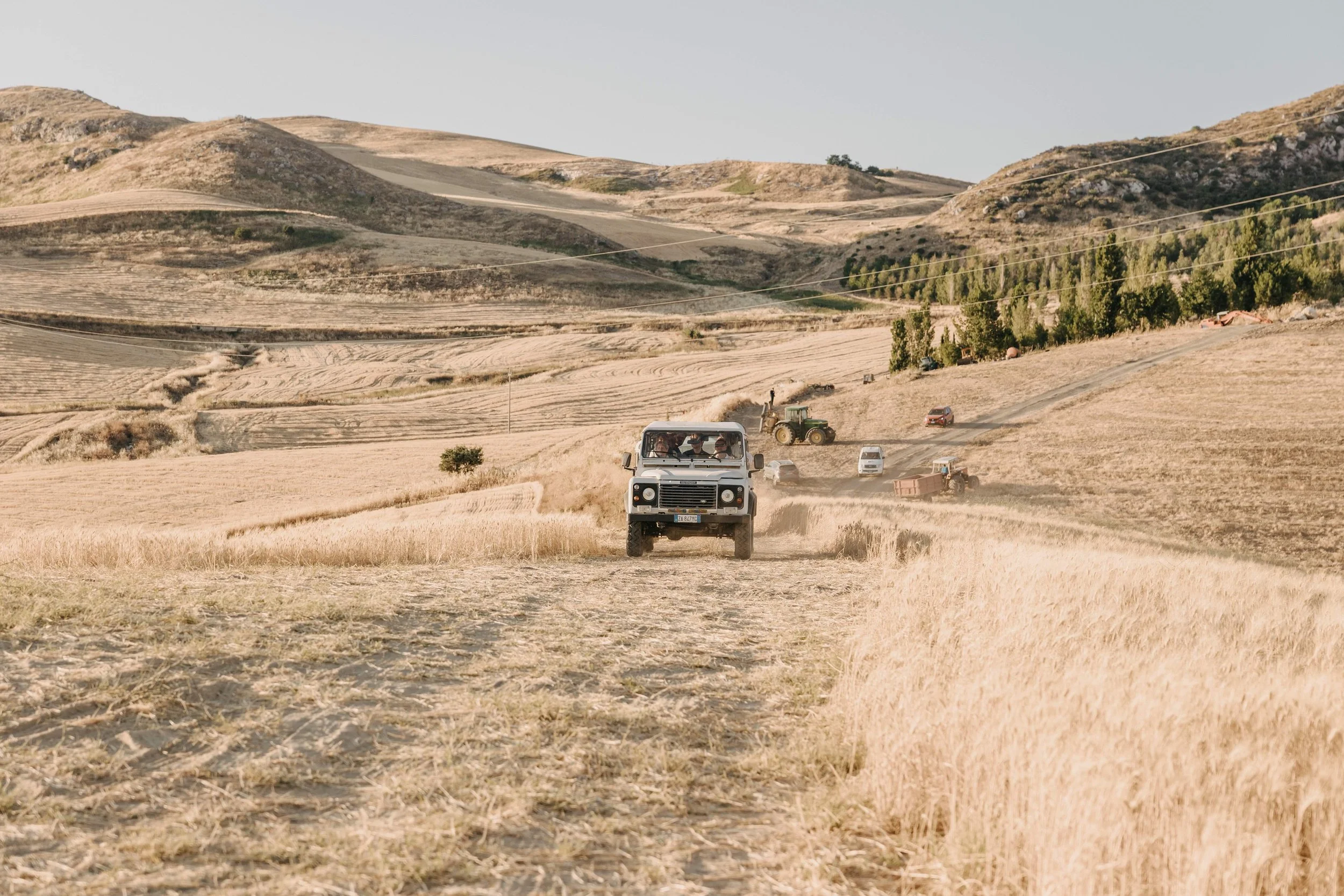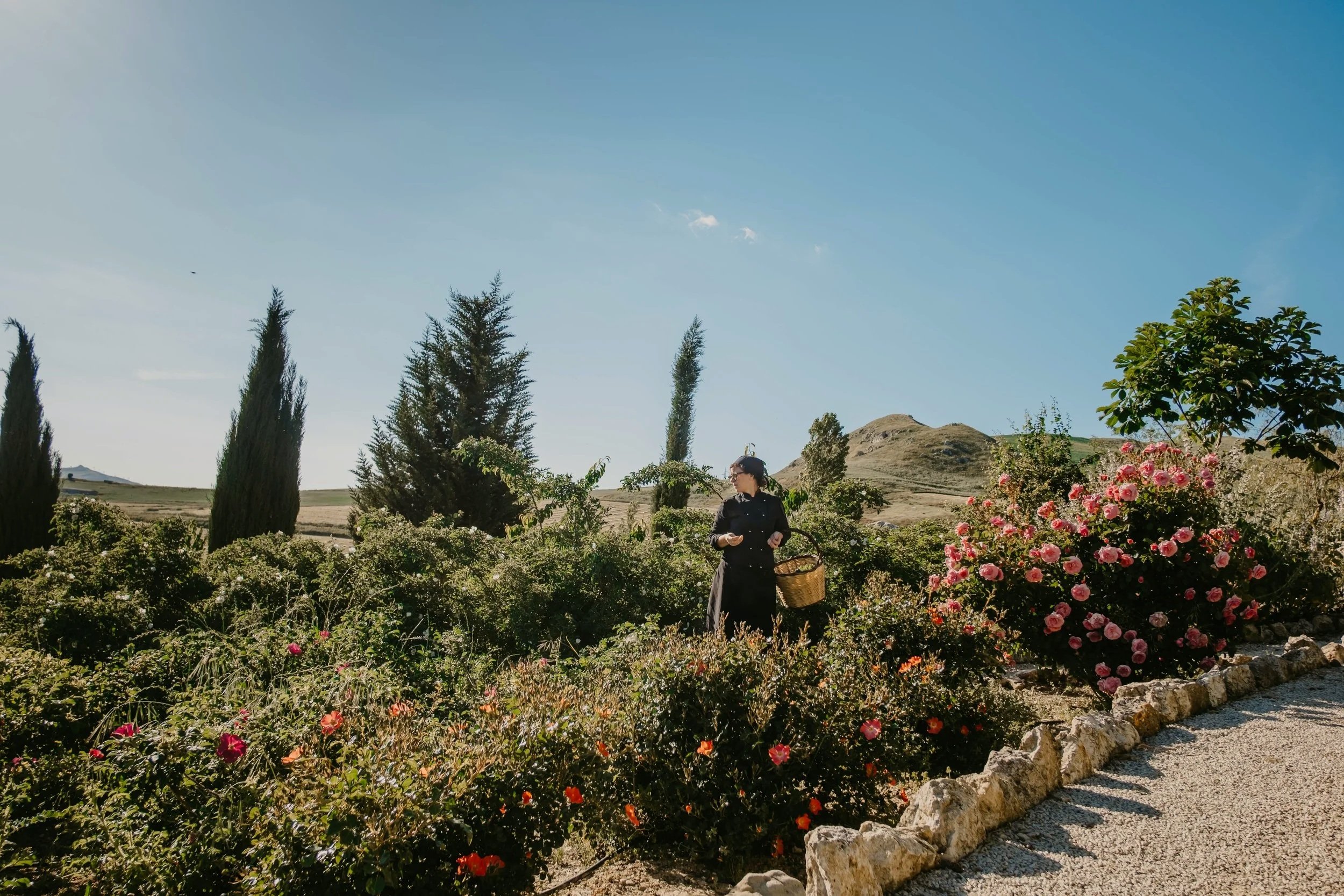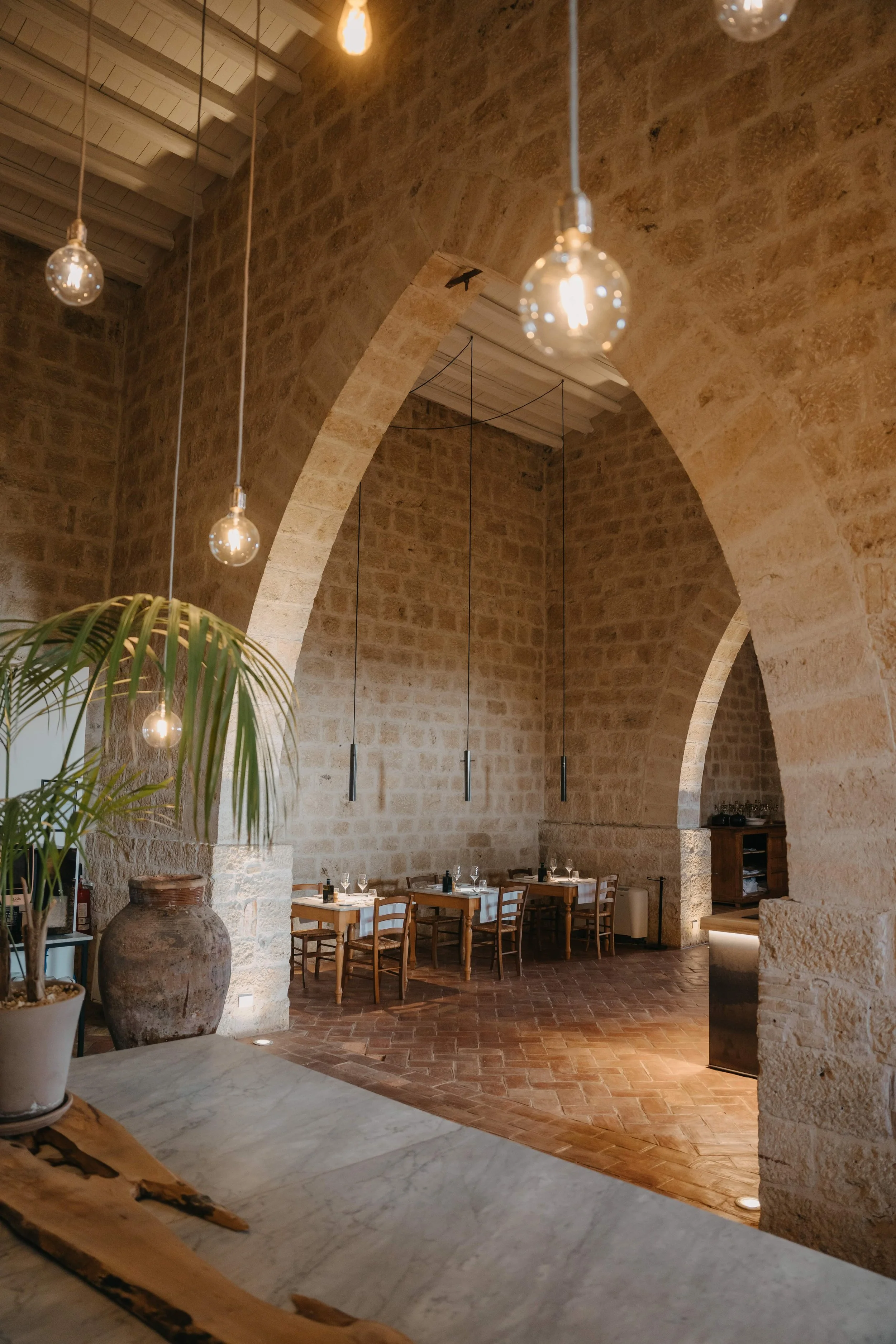Witnessing Generations: Manfredi Rizzuto on Reversible Design and the Land
I hadn’t seen Susafa yet. What I encountered first was the mind behind it.
We met in Milan in a hotel lobby, no wide landscape to capture, no wheat fields or Sicilian warmth to lean on, just conversation. And in that setting, stripped of context, his intentions became sharper than any photographic impression of the property could ever be.
Manfredi Rizzuto doesn’t use nature as narrative, but thinks in cycles, in decades, in responsibility. While most in hospitality begin with guests and experiences, he begins before that: with soil, climate, and what the land can sustain without distortion.
This is why I wanted to meet him in person and sense whether the place and intention behind it carry the kind of integrity that I am looking for in my work.
He returned to Sicily in 2014 after years working in Milan, Canada, and Belgium. He describes it as a moment of personal crisis - stressed, exhausted, looking back toward his comfort zone. In 2015, he began the hospitality project that would become his life's work. But the seeds were planted much earlier: since high school, he remembers worrying about climate change, insisting to his family that they needed to plan for what was coming. His first act was not building guest rooms, but planting trees.
It struck me immediately how deeply rooted his vision is in understanding the land not as an object to be tamed, but as a living ecosystem, a network of possibilities that humans can nurture but never fully control.
Forestation and the Invisible Work
In 2005, Rizzuto began his first forestation project. Fifty hectares of green spaces now surround the property, carefully tended to restore balance and slow degradation. Sicily is officially under desertification risk, and this work, unseen by most guests, is fundamental to the estate's life.
He mentions nature and today's guests' longing for immersion in it, but nature, as he describes it, is not always comfortable. I'd go further: it is not romantic either. Nature is raw, unpredictable, beautiful, sometimes harsh - paradoxical and complex, like us.
I tell him about Namibia, a night in Etosha National Park where I witnessed a young baby rhino fall victim to an older rhino's brutal and repeated attack at the water hole. It completely shocked me and made me realize my own naive approach to nature. That complexity is exactly what Rizzuto is attuning to.
He laughs: "We don't have rhinos or giraffes here, nothing so extreme" - but the principle is the same. The land is a teacher and not always a dependable one, not just a pretty backdrop for curated experiences.
That moment in Namibia crystallized something I return to often: we want to control life, to have experiences that feel safe, wellness-oriented, natural. Yet the complexity of life itself - its refusal to be tamed - is where real transformation takes place. Only when we recognize nature's autonomy can we create experiences that feel both authentic and transformative.
Reconstructing a Living Community
Sicily emerges in our conversation as a living, breathing “continent” with its volcanic landscapes layered with history, agriculture, and cultural memory. The island is not merely a place to visit but a host containing centuries of stories.
The history of Susafa is extraordinary in itself. In 1868, just after Italian unification, Rizzuto's ancestors purchased 1,200 hectares of former church land once cultivated by Teutonic knights as one of the church's granaries. With it came over 500 workers who held the knowledge of cereal cultivation - a self-sufficient community producing everything needed for survival.
Casa Madre - "the new house" - was built as a modern agricultural complex for serious business: wheat for trade between Sicily and the north. Yet alongside that enterprise existed a community growing vegetables, fruit, legumes, making cheese, pressing olive oil, baking bread, fermenting wine. Isolated from villages without roads or cars, they produced nearly everything themselves.
Rizzuto remembers this world, barely. As a child in the early 1980s, he witnessed its last traces, families making cheese and wine, bread makers, vines and fruit trees. Then came the exodus: rural workers abandoned countryside for cities through the 70s and 80s. The family adapted, maximizing wheat production. The community dissolved; the old rhythms stopped.
Rizzuto's vision is reconstruction as living practice: reimagining self-sufficiency through modern hospitality, respecting the land's rhythms, creating dialogue between human and ecological, tradition and contemporary need. He is rebuilding the invisible structure where human labor, ecological intelligence, and the land's subtle forces coexist.
The Luxury of Connection
I see this as a meditation on what luxury could mean: not the polished or the convenient, but the connected, the deeply honest, and the visceral. Guests seek detox, escape, an experience that is at once comforting and challenging. And yet, as Rizzuto candidly admits, finding the right balance is complicated.
"Mostly guests are looking for an original authentic experience," he tells me. "But we are not well trained on jumping from city to countryside life." The reality, he has learned over ten years, is that the experience is actually 70% comfort and 30% authentic encounter. Yet that 30% carries a weight that feels much larger than the stay itself.
This is an honest reckoning with hospitality's inherent contradictions. We are city dwellers, conditioned to controlled environments, to the metro and the supermarket and the open fridge. Yet we have an ancestral, biological connection to nature - we feel emotion before a sunset, before an uncontaminated landscape - but we have forgotten how to inhabit it without comfort as a buffer.
Rizzuto's extreme vision, one he admits he may never fully realize, is to eliminate electricity entirely, to offer guests the experience of picking fresh eggs in the morning, cooking with vegetables from the garden, being genuinely involved in farming life (and that’s not always pretty either).
Design, Beauty, and Continuity
The estate's design mirrors this philosophy. Stone buildings are preserved, contemporary interventions reversible, the aesthetic never overwhelming the landscape. What strikes me most: he designs only what can be removed later. The bathrooms aside, most buildings consist of furniture and installations within raw stone structures—strip them away and you return to the original spirit. He's designing out of respect for future generations who may want something entirely different.
Luxury, as Rizzuto frames it, is both human and natural: our ability to distinguish beauty, to cultivate it responsibly, and to engage with it meaningfully. The philosophy resonates with my own work in Archive of Beauty: what appears effortless, harmonious, or magical is always the result of unseen structure (as in nature when you look at it through a microscope) and intention. At Susafa, human attention and ecological intelligence converge to create that invisible architecture.
Hospitality as Meditative Practice
In the welcome letter that guests receive, Susafa speaks in first person - the estate itself reflecting on its life. "I saw different people, I saw different cultures, I saw different lifestyles, and I'm still here," it says. "I'm hospitable by nature. I will keep hosting people for centuries and I will keep preserving what people bring inside. So I see time and I see generations. I have a different overview of life."
This perspective - the building as witness, as custodian across time - embodies everything Rizzuto is creating.
Guests may come for comfort, but what stays with them is the presence of thought, of history, of nature's uncompromising reality.
To me, this is a lesson that extends far beyond Sicily: a place becomes the practice of understanding, translating, and transmitting the intelligence of the land into human experience.
words by Jean Linda Balke, photography Susafa, Luigi Fiano

